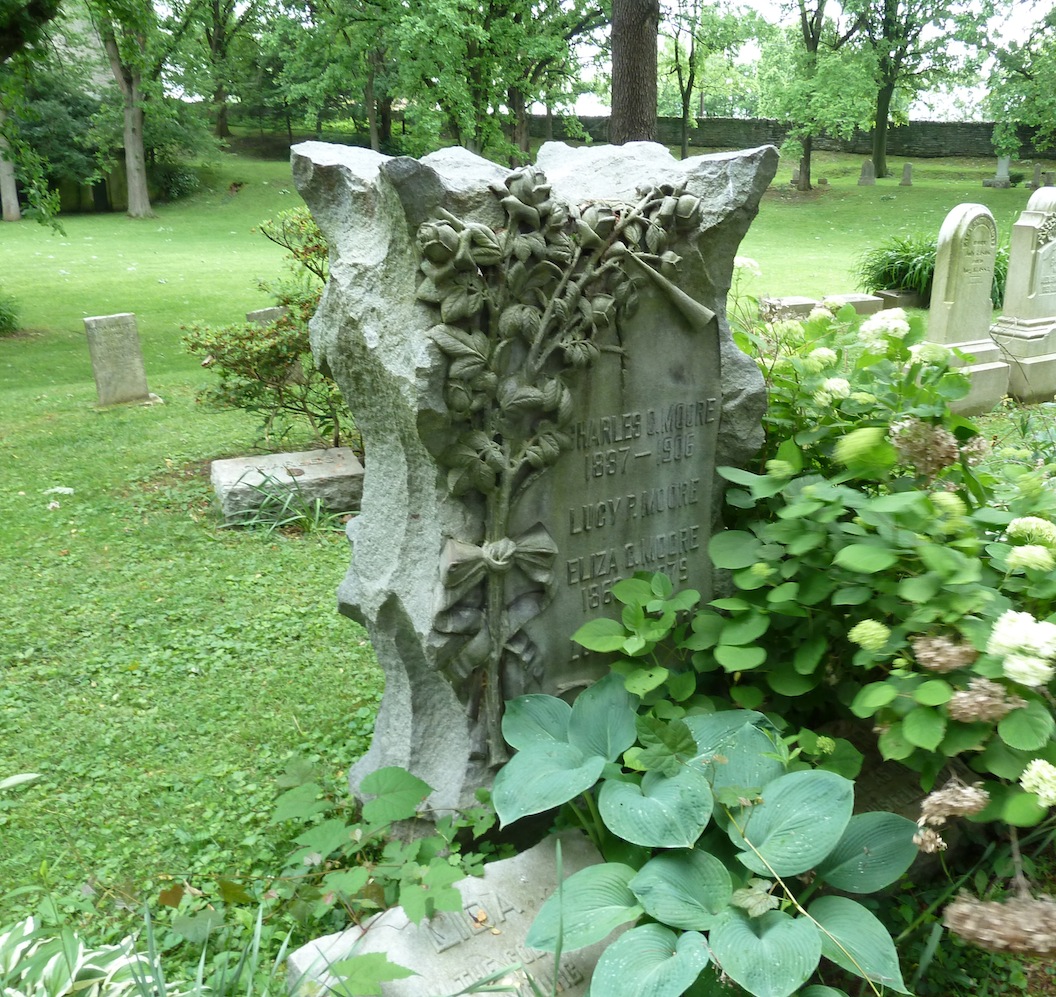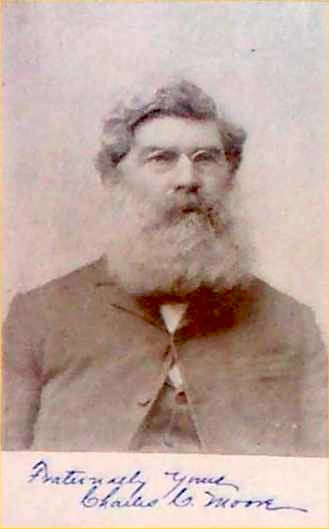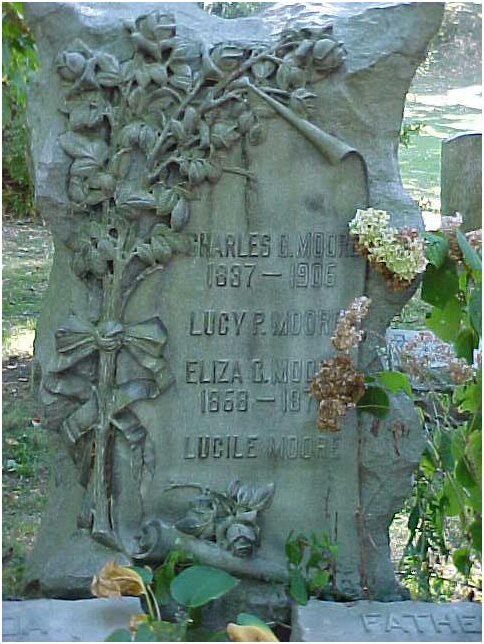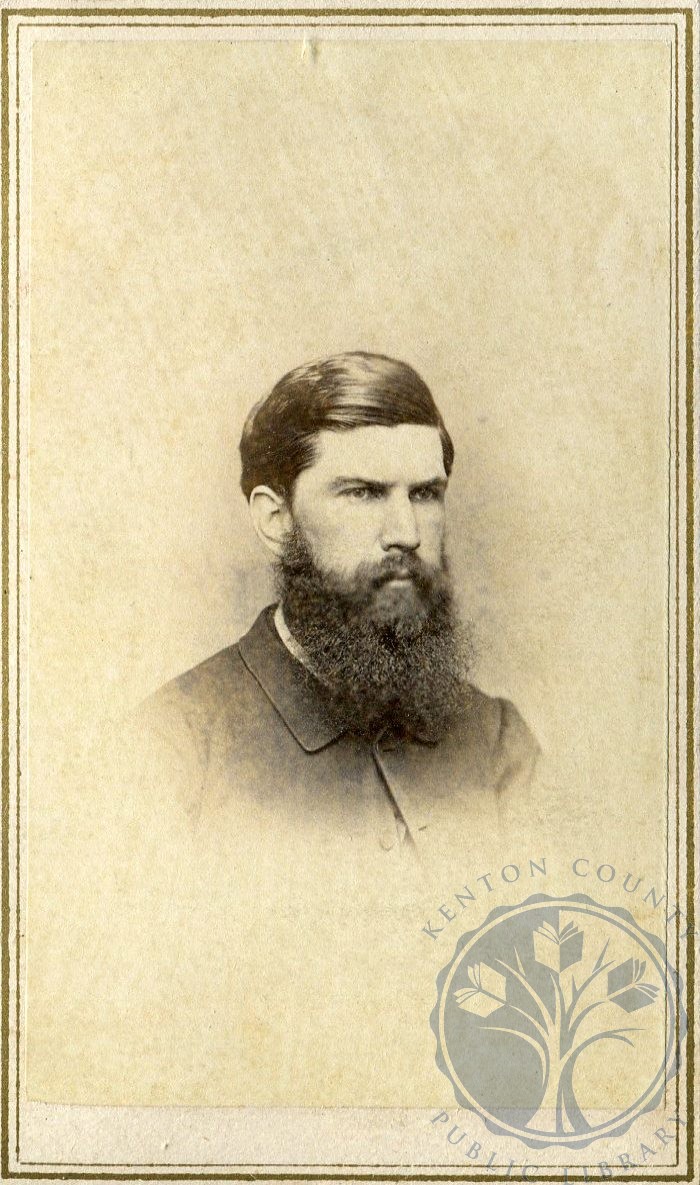Moore was the editor of one of the nation's first journals promoting atheism, Blue Grass Blade. He received great rejections from theists and creationists. He spent numerous occasions in prison because of his outspoken attacks on the Bible and theology. His autobiography, Behind The Bars, was written while in prison for free-love articles appearing in his paper. In 1900, in the case of United States v. Moore, the District Court D., Kentucky, ruled that a publication to be prohibited from the mail system, it must be lewd and lascivious as well as obscene, and that it could not be banned because it offends the religious sentiments of the majority of the people by attacking the doctrine of the immaculate conception of Christ, even though worded in coarse or obscene language. The court went on to say that a publication must have a tendency to induce sexual immorality. Moore was one of the last men in America to be sent to prison for blasphemy. However, he was pardoned by President William McKinley.
Courtesy of Scott Harp's Web site.
Moore was the editor of one of the nation's first journals promoting atheism, Blue Grass Blade. He received great rejections from theists and creationists. He spent numerous occasions in prison because of his outspoken attacks on the Bible and theology. His autobiography, Behind The Bars, was written while in prison for free-love articles appearing in his paper. In 1900, in the case of United States v. Moore, the District Court D., Kentucky, ruled that a publication to be prohibited from the mail system, it must be lewd and lascivious as well as obscene, and that it could not be banned because it offends the religious sentiments of the majority of the people by attacking the doctrine of the immaculate conception of Christ, even though worded in coarse or obscene language. The court went on to say that a publication must have a tendency to induce sexual immorality. Moore was one of the last men in America to be sent to prison for blasphemy. However, he was pardoned by President William McKinley.
Courtesy of Scott Harp's Web site.
Inscription
Write me as one who loves his fellow man
Family Members
Sponsored by Ancestry
Advertisement
Advertisement







